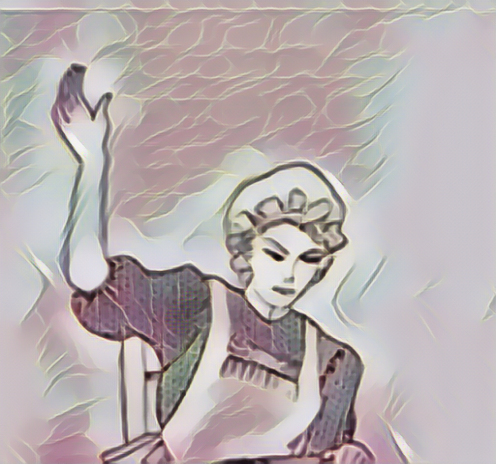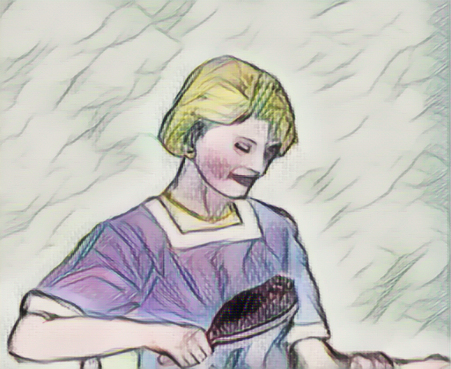(gap: 2s) In the heart of Kensington, London, during the mid-1960s, my family lived a life that, from the outside, seemed almost charmed. Our home was a grand, three-story townhouse with tall windows and ornate moldings, the kind of place where the echo of laughter lingered in the halls and the scent of fresh flowers drifted from room to room. My parents were the very image of wealth and sophistication—always impeccably dressed, with an air of effortless elegance. Yet, for all their affluence, they were rarely present at home. My father was constantly away on business trips, traveling to distant cities and countries, while my mother was often occupied with social events, charity galas, and luncheons with her friends. Their frequent absences left the house feeling grand but strangely empty, and the day-to-day running of our lives fell to others.
Among the fixtures of our daily life was our Jamaican Nanny, Fiorel, who had come to London as part of the first wave of immigrants in the 1950s. Because of the times, I was expected to call her Nanny Fiorel as a sign of respect. She was a big woman—tall and broad-shouldered, with a presence that filled any room she entered. Her hands were large and strong, her arms sturdy from years of hard work. She often wore simple, practical dresses in muted colors, usually with a crisp white apron tied around her waist. Her hair was always neatly wrapped in a scarf, and she favored comfortable, sturdy sandals or bedroom slippers that made a soft, shuffling sound on the polished floors. There was a quiet dignity in the way she carried herself, and her deep, resonant voice could be both soothing and commanding. She brought with her not only the warmth and vibrancy of her homeland, but also a strong sense of discipline and tradition.
But not everyone in our wider family approved of Nanny Fiorel’s presence in our home. Some relatives, especially the older generation, looked at her with suspicion and disapproval, their prejudices barely concealed beneath polite conversation. My grandparents, in particular, were never comfortable with the idea of a Black woman having such authority in the household, especially over their grandchildren. They would make pointed remarks at family gatherings, questioning my parents’ decision to employ “someone like her,” and sometimes even refusing to speak directly to Nanny Fiorel at all. Their attitudes were shaped by the world they grew up in—a world where class and race were rigidly enforced, and where the idea of a Jamaican woman disciplining their grandchildren was, to them, almost unthinkable.
I remember the tension whenever my grandparents visited. My grandmother would purse her lips and glance disapprovingly at Nanny Fiorel as she moved about the house, her eyes lingering a little too long on the color of her skin. My grandfather, meanwhile, would grumble under his breath about “proper English ways” and the “old standards” being lost. They never said anything outright in front of us children, but their discomfort was obvious. Even as a child, I could sense the coldness in their tone and the way they avoided any real interaction with her. It was as if her very presence was a challenge to their sense of order and tradition.
Despite this, Nanny Fiorel carried herself with the same quiet dignity, never letting their attitudes affect her work or her care for us. She would greet my grandparents with the same respectful “Good afternoon, ma’am, sir,” and go about her duties as if their disapproval simply didn’t exist. But I could see the way her eyes hardened just a little, and how she would stand a bit straighter, as if to remind herself—and them—that she belonged in our home, no matter what they thought.
In those days, discipline was severe and corporal punishment was common, both at home and at school. But there was a distinct British formality to it—a kind of ritual. In Britain, the cane or the belt was the standard, and punishments were often carried out with a sense of restraint and adherence to rules. At school, a teacher would announce the offense, the number of strokes, and the implement to be used. At home, parents or guardians would mete out discipline with a certain emotional distance, as if fulfilling a necessary duty rather than expressing anger. The act was meant to correct, not to humiliate, and there was a clear line between punishment and affection. Children were expected to accept their fate stoically, and the adults rarely showed emotion during or after the act.
Nanny Fiorel, however, brought with her a very different approach to discipline—one shaped by her Jamaican upbringing. She would often talk about how, back in Jamaica, discipline could be even harsher. There, punishment was not only more severe but also more personal and improvisational. Instead of the strict rules and formalities of Britain, discipline in Jamaica could involve a wide range of implements—whatever was at hand: a switch from the garden, a wooden spoon, a slipper, or even a quick pinch. The act itself was less about following a set procedure and more about asserting authority in the moment. It was direct, sometimes unpredictable, and always deeply personal.
She sometimes demonstrated the strictness she had grown up with, and spoke openly about the methods used there, which made even the sternest English punishments seem mild by comparison. In Jamaica, discipline was intertwined with expressions of care, community, and authority. A child might be scolded, punished, and then immediately embraced, comforted, or even fed a treat. The emotional complexity was striking: the same hands that delivered punishment would also wipe away tears and offer forgiveness. Discipline was not just a necessary part of upbringing—it was a way of showing love, maintaining order, and reinforcing bonds within the family and community.
Nanny Fiorel was given full disciplinary authority over me and my sister, a responsibility she took seriously. She would take off her thick leather belt, letting it dangle from her hand as a warning. Mother could always hear when one of us got whipped, but she never interfered.
There is one particular memory that stands out—a time when the belt was not just a threat, but a reality. It was a rainy afternoon, the kind that made the whole house feel dim and close. My sister and I had been bickering all morning, our voices echoing through the halls, until finally, in a fit of childish defiance, I knocked over a vase in the sitting room. The crash was deafening, and the silence that followed was even louder. Nanny Fiorel appeared in the doorway, her face set in a mask of disappointment and resolve. She didn’t raise her voice, but the way she looked at me made my stomach twist with guilt and fear. She calmly told me to fetch the belt from her room—a ritual that made the punishment feel inevitable, and gave me time to stew in my own dread. My hands trembled as I handed her the thick leather strap, its weight heavy with meaning. She instructed me to bend over the arm of the sofa, her voice gentle but firm. The first sting of the belt was sharp, and I bit my lip, determined not to cry. But as the strokes continued, the pain built, and I couldn’t hold back the tears. Each lash was measured, not wild or angry, but deliberate—a lesson, not a venting of rage. When it was over, she set the belt aside and knelt down to my level, her large hands cupping my face as she wiped away my tears. There was no gloating, no lingering anger—just a quiet reassurance that I was still loved, and that the matter was finished. The ache faded, but the memory of her care in the aftermath stayed with me far longer than the pain itself.
Nanny Fiorel used her power to make me even more obedient. I was quick to get into position, or sometimes she would just hold my arm and whip me while I ran in circles trying to avoid the belt. But afterwards, she would always hug me, her big arms wrapping me up, drying my tears, and shushing me to let me know that I was forgiven.
I still think about that affection being so nice, even though the belt caused much pain. I don’t remember the pain nearly as much as the aftercare. To this day, when I see a Nanny with a family, I wonder if she is anything like Nanny Fiorel was, and I shudder with the memory.
As I grew older, I realized that my feelings for Nanny Fiorel were more complicated than simple gratitude or respect. I became deeply attracted to her—not just in the way a child might look up to a caretaker, but in a way that blurred the lines between admiration, affection, and something more. She was so much more than a Nanny to me; she became a central figure in my life, someone I longed to be near, someone whose approval and attention I craved. In many ways, she filled the role of a mother, offering the warmth, discipline, and care that my own mother, so often absent and distant, never provided. Looking back, I think my attraction to Nanny Fiorel was rooted in that emptiness—a longing for the nurturing and closeness I never received from my own mother. Her presence was a comfort, her touch a reassurance, and her attention something I cherished above all else.
Actually, though, the worst spanking I ever got from her was not with her belt but over her lap – and she used only her hand. She caught me staring at her behind one day when she bent over to pick up something, and gave me a disapproving stare. Later in my life, she would admit that she was flattered by my admiration but at the time felt she had to establish her authority and demand my respect.
The memory of that day is still vivid, as if etched into my skin. The sitting room was filled with the golden haze of late afternoon, dust motes swirling in the light that filtered through the heavy curtains. I remember the faint scent of furniture polish and the distant ticking of the grandfather clock. Nanny Fiorel called me over with a single, firm word—my name, spoken in that deep, resonant voice that brooked no argument. My heart thudded in my chest as I shuffled across the thick rug, my cheeks burning with embarrassment and dread. She sat down heavily in the old armchair, her wide lap forming a solid, unyielding platform. Without a word, she guided me over her knee, my body draped awkwardly, my face pressed against the cool fabric of her apron. I could see her large feet in those familiar sandals, planted firmly on the floor, and I felt impossibly small and exposed. The room seemed to shrink around us, the silence broken only by my own nervous breathing. Then her hand came down—hard, and then again, and again. The sound was sharp, echoing off the walls, each smack sending a jolt of heat and pain through me. At first, I tried to be brave, clenching my fists and biting my lip, but the sting built quickly, each blow landing with relentless precision. My legs kicked helplessly, my toes scraping against the rug, and soon I was sobbing, the tears hot on my cheeks. The pain was real, but so was the overwhelming sense of shame and regret. She didn’t scold or lecture—her hand did all the talking, firm and unwavering. When she finally stopped, my bottom was throbbing, my pride in tatters. She lifted me gently, settling me on her lap, her big hands rubbing my back and my sore behind in slow, soothing circles. I buried my face in her shoulder, breathing in the scent of her skin and the faint trace of lavender from her soap. She rocked me gently, humming a low, wordless tune, until my sobs faded and I felt safe again, wrapped in her warmth and forgiveness.
The spanking lasted much longer than any belt spanking she had ever given me and by the conclusion, my feet were flailing around from the pain. However, she did finally decide I had been given enough, and this time comforted me by sitting me on her lap, her big hands rubbing my sore behind.
This was by no means the last hand spanking Nanny Fiorel gave me. From her experience that time, she decided that a big boy being brought to tears with just her hand was an even more effective punishment than her harsh leather belt.
I still got disciplined with her belt sometimes, though, including the times that she would leave the belt in the middle of my bed which meant I had to wait for her to come to my room. She would come in wearing her bedroom sandals, which she would always take off before she started to swing the belt. I had to lean across it so my head was hanging off – she would stand on the side where my head hung.
I was then sent to bed early but Nanny Fiorel would cuddle me until I calmed down.
(pause) But there was so much more to Nanny Fiorel than discipline. She was the one who taught me how to tie my shoes, who bandaged my scraped knees, who sang me to sleep on stormy nights when thunder rattled the windowpanes. She had a way of making the ordinary magical—turning







